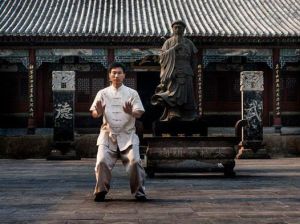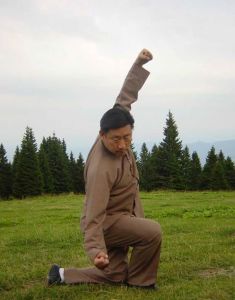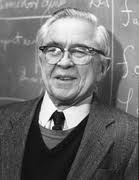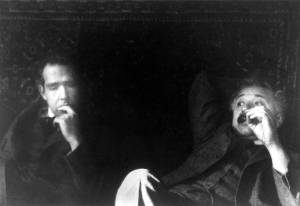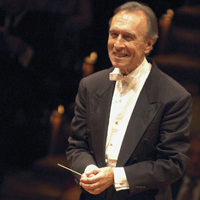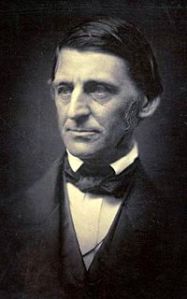
Lately, I’ve been exploring some of the writings of Ralph Waldo Emerson and finding resonances to Taoism over and over. I get a funny sense of euphoria, when I stumble upon these resonances. It’s amazing to me to find ideas that sound so Taoist, not from a shadowy author in ancient China, but from 1800’s America, and to hear these ideas expressed so beautifully, so powerfully and boldly, in an American voice. The idea of resonances between Taoism and Emerson and other American Transcendentalists is not original to me, of course. Many others have noted this before—for example, Richard Grossman has edited a book, which I haven’t had a chance to read yet, called The Tao of Emerson: The Wisdom of the Tao Te Ching as Found in the Words of Ralph Waldo Emerson in which he juxtaposes quotes from Lao Tzu and Emerson. But there’s still a bit of a thrill to me about stumbling across seemingly Taoist ideas in Emerson.
Lately I’ve been listening to an excellent course on CD by Professor Ashton Nichols entitled “Emerson, Thoreau, and the Transcendentalist Movement” (course 2598, The Great Courses, The Teaching Company). In the course, Professor Nichols reads a passage from Emerson’s essay “Nature,” which struck me very powerfully:
“Standing on the bare ground, –my head bathed by the blithe air and uplifted into infinite space,– all mean egotism vanishes. I become a transparent eye-ball; I am nothing; I see all; the currents of the Universal Being circulate through me; I am part or particle of God.”
–Ralph Waldo Emerson, Nature (1836)
There is so much Taoist resonance in just these few lines. The first sentence—in which he describes himself standing with the bare ground below him and his head uplifted into infinite space above him—-sounds very much like the Taoist idea of humans being profoundly affected by the energies of “heaven” (i.e. the cosmos) and earth. Caught up in the swirl of these natural energies, Emerson lets go of a sense of egotistical self-importance, and in fact his very selfhood seems to virtually dissolve in that moment. He reaches a state of heightened awareness in which he sees all, but no longer feels like a separate self. Instead, the “currents of the Universal Being” circulate through him—which sounds very much like the Taoist concept of the energies (qi) of heaven and earth which circulate through us. While the importance of his separateness from the natural world around him diminishes, he realizes that he is part or particle of God. Because Emerson’s view of God was not necessarily of a personified being, one might say, in Taoist terms, that he is talking about a feeling of being a part of, or even merged with Nature, merged with Tao. Please see my earlier post liberation from the fear of death in which I discuss this Taoist idea of our being part of Tao, i.e. of there being no real separateness of ourselves from Tao.
Although, in an ultimate sense, he sensed the unity of his self with Nature, Emerson, like the ancient Taoists Lao Tzu and Chuang Tzu, emphasized the importance of living your life in a such a way that you can be and express your authentic self, rather than slavishly following social conventions. It is your authentic self—not your facade of conformity–that is ” part or particle of God”, that is Tao.
“What I must do is all that concerns me, not what the people think. This rule, equally arduous in actual and in intellectual life, may serve for the whole distinction between greatness and meanness. It is the harder, because you will always find those who think they know what is your duty better than you know it. It is easy in the world to live after the world’s opinion; it is easy in solitude to live after our own; but the great man is he who in the midst of the crowd keeps with perfect sweetness the independence of solitude.
“The objection to conforming to usages that have become dead to you is, that it scatters your force. It loses your time and blurs the impression of your character. If you maintain a dead church, contribute to a dead Bible-society, vote with a great party either for the government or against it, spread your table like base housekeepers, — under all these screens I have difficulty to detect the precise man you are. And, of course, so much force is withdrawn from your proper life. But do your work, and I shall know you. Do your work, and you shall reinforce yourself.”
–Ralph Waldo Emerson, Self Reliance, 1841
And, as Emerson stated succinctly in the same essay,
“Whoso would be a man [human] must be a nonconformist.”
–Ralph Waldo Emerson, Self Reliance, 1841
Much like Taoists, Emerson finds value not in the pretentious, the affected, or the ornate, but in the simple, in those things that are seemingly common and low.
“I ask not for the great, the remote, the romantic; what is doing in Italy or Arabia; what is Greek art, or Provencal minstrelsy; I embrace the common, I explore and sit at the feet of the familiar, the low.”
–Ralph Waldo Emerson, American Scholar
…which reminds me of this quote from the Tao Te Ching…
“The supreme good is like water,
which nourishes all things without trying to.
It is content with the low places that people disdain.
Thus it is like the Tao.”
Tao Te Ching, Chapter 8, Stephen Mitchell translation
In an earlier post, nonstriving, I wrote about what I see as the problems with the excessive striving and grasping for external signs of “success” (money / power / prestige) in 21st century American culture, and contrasted this with the Taoist value of simplicity. About 150 years earlier, Emerson, though he loved America, was lamenting essentially the same tendency among many of his fellow Americans to revere and strive for money for its own sake….
“It is the vulgarity of this country to believe that naked wealth, unrelieved by any use or design, is merit.”
Ralph Waldo Emerson, 1854
“All the toys that infatuate men— houses, land, money, luxury, power, fame— are the self-same thing. The man whose eyes are nailed, not on the nature of his act, But on the wages, whether it be money or office or fame, is equally low. Nature arms each man with some faculty which enables him to do easily some feat impossible to any other, And this makes him necessary to society. The peril of every fine faculty is the delight of playing with it for pride.”
–Ralph Waldo Emerson
In contrast to the life of striving for superficial signs of success, Emerson described a Transcendentalist ideal of a life of self sufficiency and meaningful accomplishment without excessive striving:
“We have had many harbingers and forerunners; but of a purely spiritual life, history has afforded no example. I mean, we have yet no man who has leaned entirely on his character and eaten angels’ food; who, trusting to his sentiments, found life made of miracles; who, working for universal aims, found himself fed, he knew not how; clothed, sheltered, and weaponed, he knew not how, and yet it was done by his own hands. Only in the instinct of the lower animals, we find the suggestion of the methods of it, and something higher than our understanding. The squirrel hoards nuts, and the bee gathers honey, without knowing what they do, and they are thus provided for without selfishness or disgrace.”
— Ralph Waldo Emerson, The Trancendentalist, 1842
This conception of “trusting to his sentiments,” of providing for oneself and achieving without excessive striving, “without selfishness or disgrace,” with the naturalness of a squirrel hoarding nuts or a bee gathering honey, sounds much like the Taoist idea of wu wei.
A paper by He Jing comparing Lao Tzu’s “Tao” to Emerson’s “Oversoul,” provides an useful outline of similarities and distinctions between the work of Lao Tzu and Emerson:
http://www.uri.edu/iaics/content/2008v17n1/21%20He%20Jing.pdf
An essay by David T.Y. Ch’en (in Narasimhaiah, C.D., ed., 1972, Asian Response to American Literature, Delhi: Vikas, pp 406-16.) argues that another American Transcendentalist and protege of Emerson, Henry David Thoreau, may have been directly influenced by Taoist texts, and draws parallels between the writings of Thoreau and Chuang Tzu:
http://transcendentalism.tamu.edu/roots/hdt-tao.html
Linda Brown Holt has also written an excellent post on the parallels between Thoreau and Taosim:
http://www.religiousscholar.com/the-chinese-roots-of-hd-thorea/
It is unclear whether Emerson was influenced directly by Taoist texts, such as the Tao Te Ching. However, there were almost certainly indirect Taoist influences on Emerson, since he did read Buddhist texts, and of course Buddhism mixed with Taoism in China and Japan (Chan and Zen Buddhism). But in addition to any influences through Buddhist texts, it seems that Emerson re-discovered many of the same principles by observing Nature and human society, and, perhaps most importantly, by looking inside himself. These principles are not uniquely Chinese. Like Emerson before us, we contemporary Americans can look around us, and inside ourselves, and discover them anew. Happy 4th of July!
©2009-2012 Aspiring Taoist. All Rights Reserved
